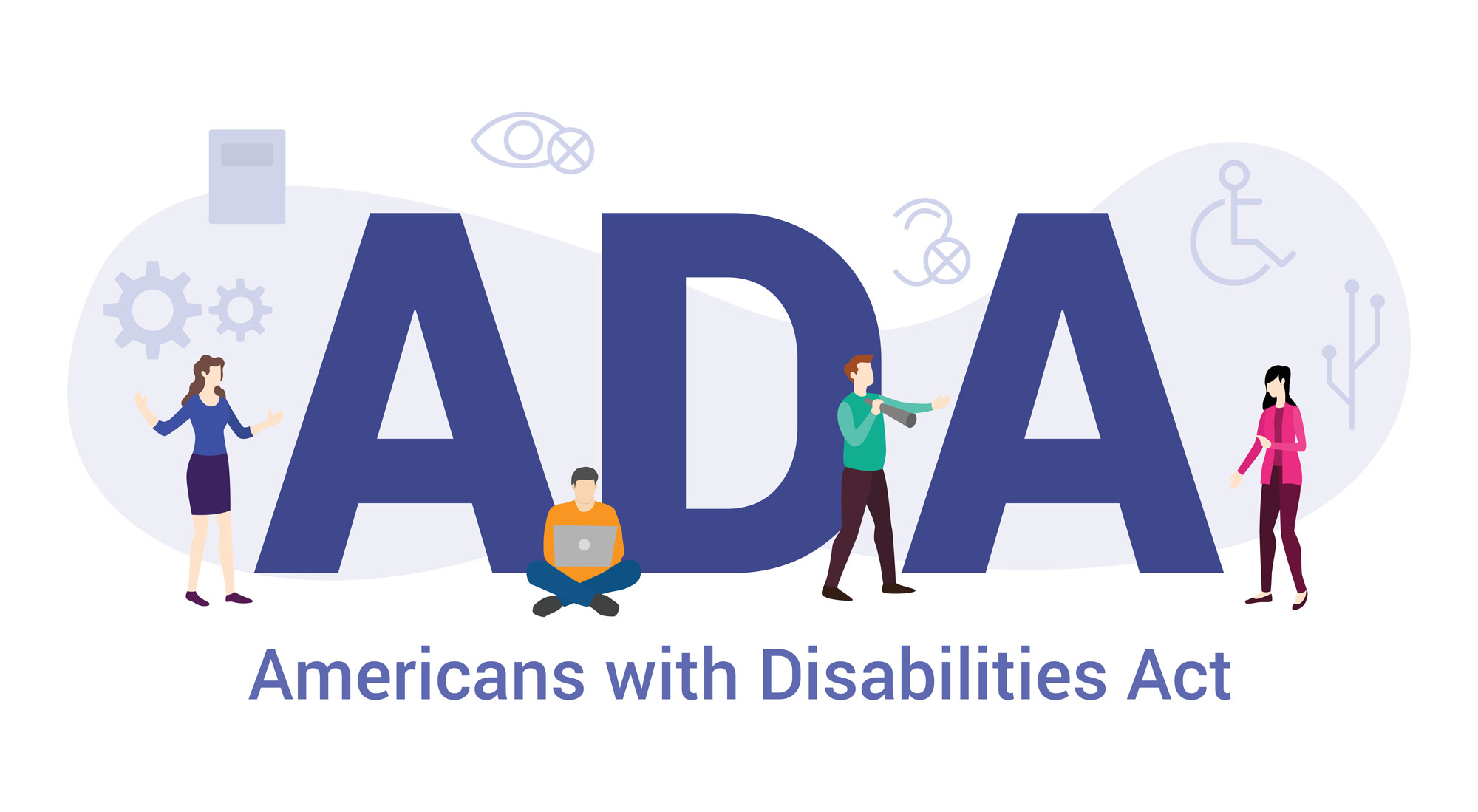
Reasonable accommodations under the Americans with Disabilities Act
The Americans with Disabilities Act (ADA) requires covered employers (those with 15 or more employees) to provide reasonable accommodation for the known disability of a qualified individual unless doing so would impose an undue hardship on the operation of the employer’s business.
A reasonable accommodation is any change or adjustment to a job or the work environment that enables a qualified individual with a disability to participate in the job application process, perform the essential functions of a job, or enjoy benefits and privileges of employment equal to those enjoyed by employees without disabilities.
Accommodations must be made on a case-by-case basis because the nature and extent of a disability and job requirements will vary. The principal test in selecting an accommodation is effectiveness (e.g., whether the accommodation will enable the person with a disability to perform the essential functions of the job).
Interactive process
Once an employer is aware of an employee’s disability and the possible need for reasonable accommodation, it should engage in the interactive process with the employee to determine the need for accommodation and whether there are reasonable accommodations to address the need.
The term “interactive process” does not appear in the ADA. The Equal Employment Opportunity Commission (EEOC) coined the term in its regulations and uses it in its enforcement guidance on reasonable accommodation: “To determine the appropriate reasonable accommodation it may be necessary for the covered entity to initiate an informal, interactive process with the individual with a disability in need of the accommodation. This process should identify the precise limitations resulting from the disability and potential reasonable accommodations that could overcome those limitations.”
The interactive process has become a vital component of legal compliance with the ADA. Essentially, it is a two-way, ongoing conversation between employer and employee with the goal of obtaining the information needed to make an informed decision about reasonable accommodation.
Types of reasonable accommodation
Reasonable accommodation may include acquiring or modifying equipment or devices; offering job restructuring; including part-time or modified work schedules; reassigning to a vacant position; adjusting or modifying examinations, training materials, or policies; providing readers and interpreters; and making the workplace readily accessible to and usable by people with disabilities.
The Job Accommodation Network (JAN) is a service of the U.S. Department of Labor’s Office of Disability Employment Policy and provides free, confidential advice to employers about reasonable accommodations. With information on reasonable accommodation options based on limitation and workplace function, JAN can help identify possible accommodations.
Undue hardship
An employer is not required to provide accommodations that cause an undue hardship on the employer’s business. The ADA defines “undue hardship” as a significant difficulty or expense incurred by an employer considering these factors:
1. The nature and net cost of the accommodation
If cost is an issue, an employer should determine whether funding is available from an outside source, such as a state rehabilitation agency, to pay for all or part of the accommodation. In addition, the employer should determine whether it is eligible for certain tax credits or deductions to offset the accommodation cost. Also, to the extent that a portion of the accommodation cost causes undue hardship, the employer should ask individuals who have requested the accommodation if they will pay the difference.
2. Effect on the employer
The overall financial ability of the employer, the number of persons employed, and the effect of the accommodation on the employer’s expenses.
3. What the employer does
The type of operation of the employer, including the composition and structure of the workforce.
4. Impact on other employees
The effect on other employees’ abilities to perform their jobs and the impact on the facility’s ability to conduct business.
5. Impact on the facility where the accommodation would be implemented
If an employer has multiple facilities, the financial and other impact on the individual facility.
Each request for reasonable accommodation should be evaluated separately to determine if it would impose an undue hardship. Employers need to remember that there may be state or local disability discrimination laws that cover smaller employers or have stricter requirements than the ADA. Employers should check applicable state and local laws to ensure compliance.



